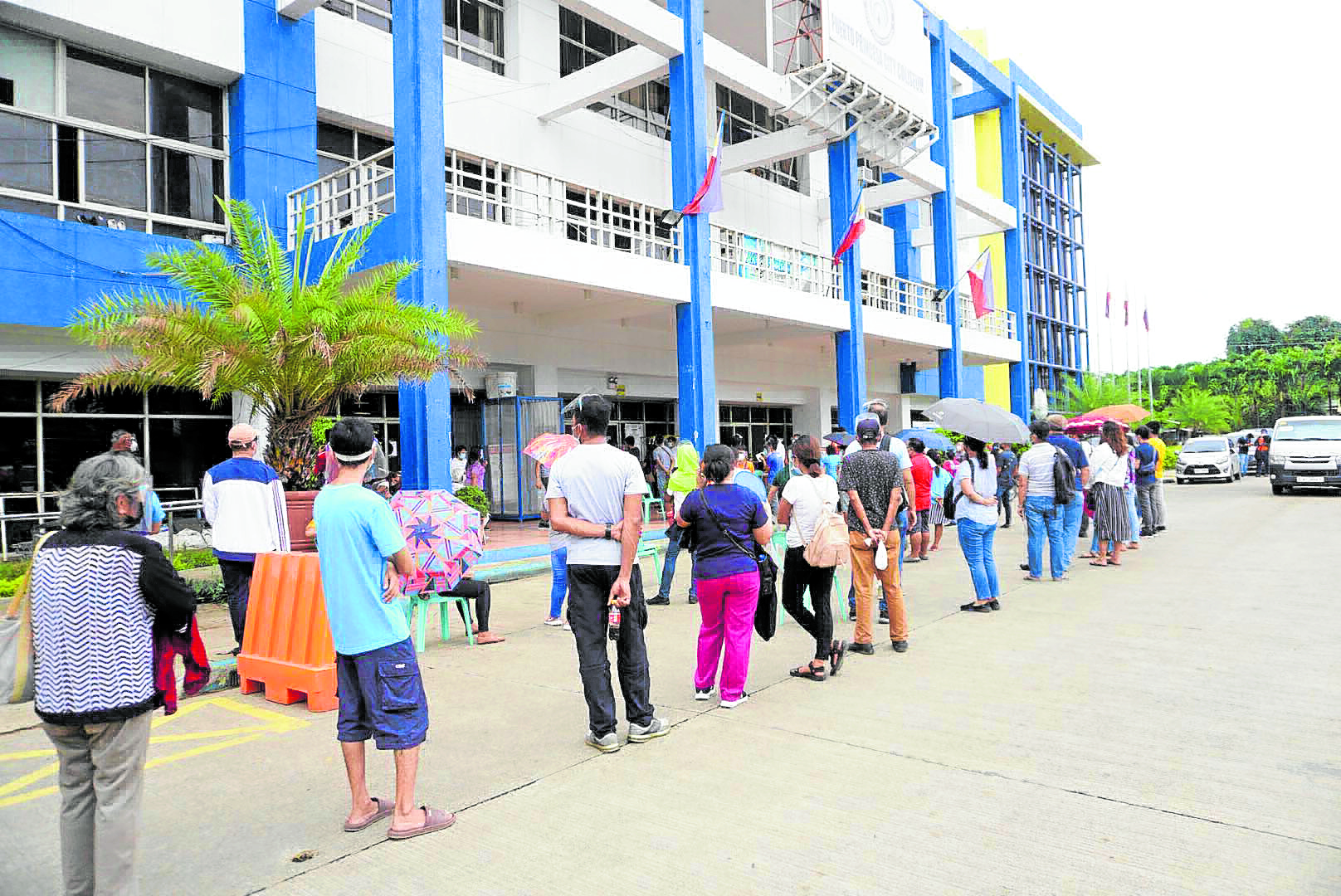
VACCINE QUEUE Residents of Puerto Princesa City wait for their turn to get vaccinated at Puerto Princesa City Coliseum as the city government speeds up its vaccine rollout amid a spike in COVID-19 cases in the Palawan capital. —CEDEZ CASTRO/CONTRIBUTOR
PUERTO PRINCESA CITY — This capital city and the rest of Palawan should improve its contact tracing to effectively address the spike of COVID-19 cases in the province, according to a member of the task force overseeing the government response to the pandemic.
Citing local data on COVID-19 cases, Baguio City Mayor Benjamin Magalong, who advises the National Task Force Against COVID-19 (NTF) on contact tracing, said health officials might not have been properly conducting contact tracing, which could have possibly led to the surge.
Magalong and other NTF officials were here on Thursday to assess the continuous increase of COVID-19 cases in Palawan, particularly in this provincial capital.
“I am sorry, but you are not contact tracing, you are only isolating. [There is no] one mile, or extra mile. Perhaps, the reason why you have a surge [is that] your healthcare workers are overwhelmed. We checked the data, bakit zero ‘yung close contact?” Magalong said during a briefing at the provincial capitol compound here.
Magalong also noted the poor documentation of contract tracing activities.
As of Thursday, Palawan recorded 1,024 active cases—571 in Puerto Princesa City and 453 in other towns.
Priority
Bases Conversion and Development Authority President and Chief Executive Officer Vivencio Dizon, who oversees the government’s COVID-19 testing, assured that Palawan would be prioritized in vaccine allocation.
“Definitely, priority will be given to Palawan, especially to Puerto Princesa, because cases are still rising and we need to ensure that all healthcare workers, the vulnerable, are vaccinated,” Dizon said in the same briefing.
On Monday, OCTA Research Group said Puerto Princesa’s positivity rate stood at 77 percent, which was significantly higher than Metro Manila’s 12 percent, citing lack of testing as one of the possible reasons.
But Puerto Princesa Mayor Lucilo Bayron said the OCTA report “does not include the whole story,” noting that those who tested positive using antigen tests and who were counted to compute the city’s positivity rate still had to go through or were awaiting results of confirmatory tests.
Puerto Princesa had relied on antigen testing from March 30 to April 9 after it ran out of reverse transcription-polymerase chain reaction (RT-PCR) test cartridges. The confirmatory tests in the city were also suspended from May 10 to May 14 when its RT-PCR laboratory shut down for maintenance.
Ramping up tests
In Malacañang, presidential spokesperson Harry Roque said the NTF would provide Palawan with more antigen test kits.
“It is necessary to step up testing while the number of cases is rising so that we could identify who needs to be isolated,” Roque said in a press briefing.
Bayron said the local government had been strictly implementing health protocols but admitted that the city would need the help of experts.
“At the rate we are going, we have yet to find the right solution. We have curfew, liquor ban, travel suspension, COVID-19 sheriff, workplace regulation. [The NTF officials] are here because we asked for their help,” he said.
According to Magalong, two recently built molecular laboratories in Puerto Princesa would be accredited next week to speed up testing.
NTF officials also said samples from Palawan would be prioritized for genome sequencing tests at Philippine Genome Center to determine if a variant of COVID-19 was circulating in the province.
—WITH A REPORT FROM LEILA B. SALAVERRIA